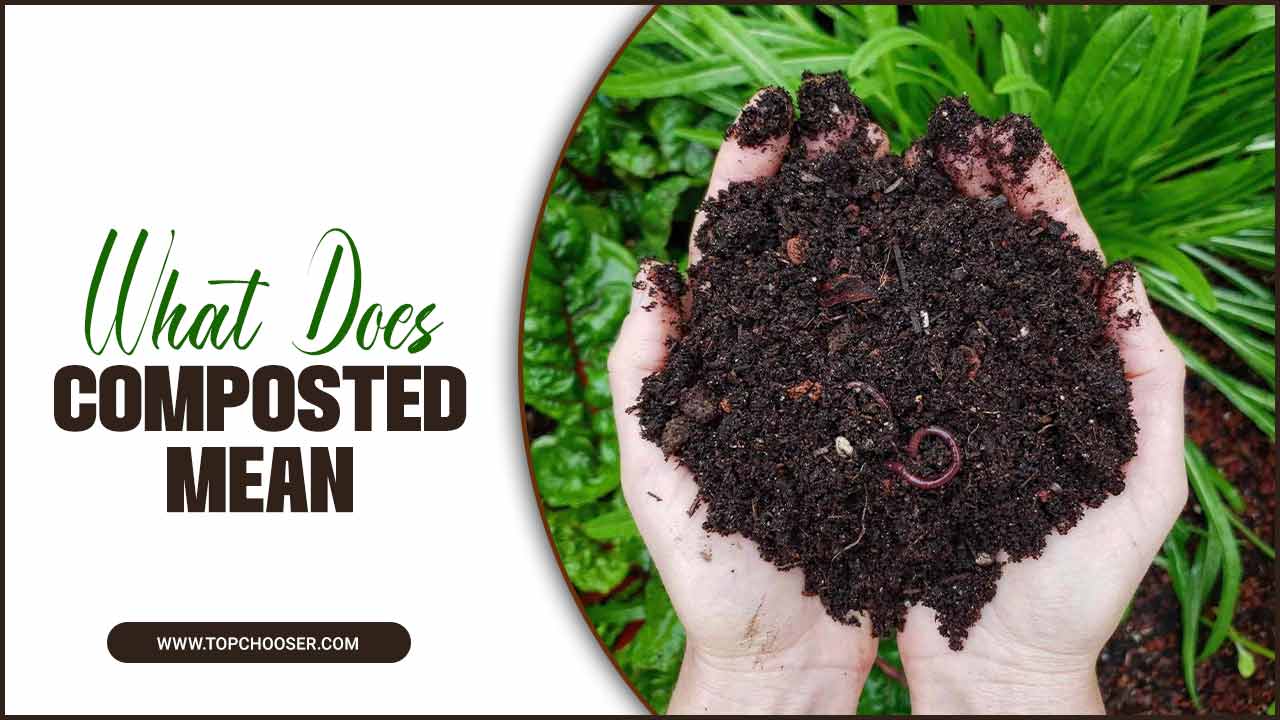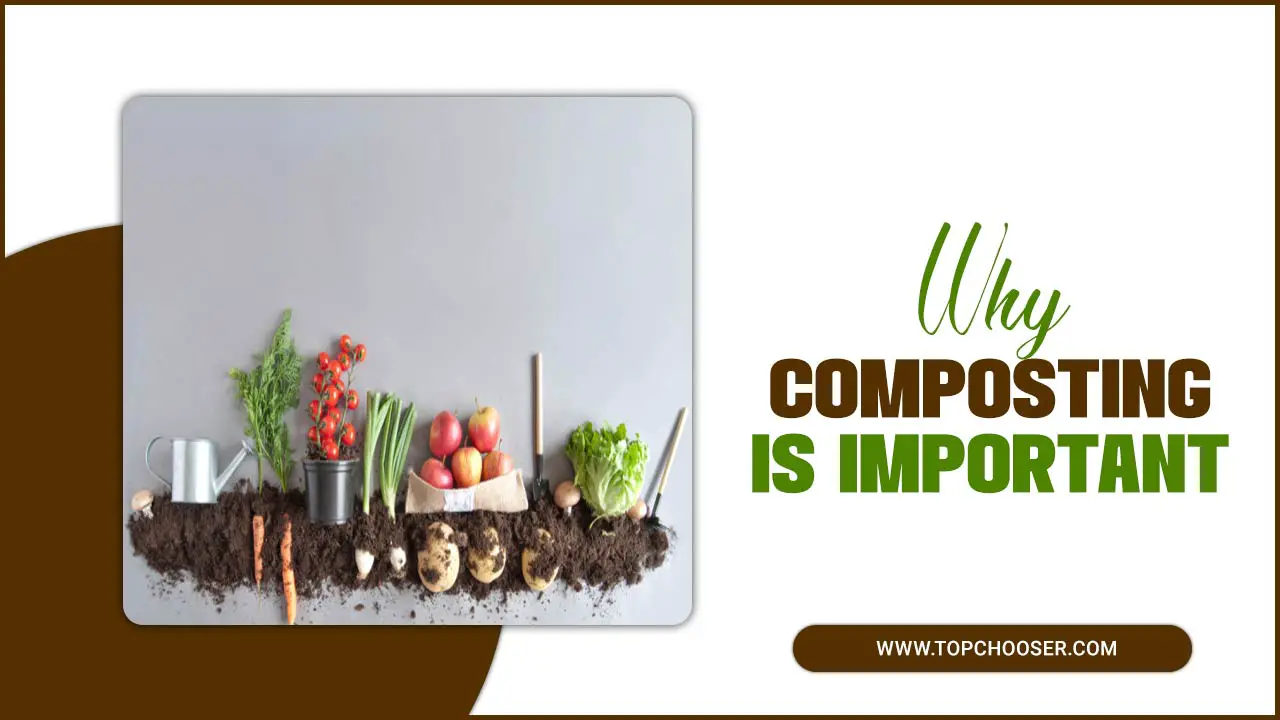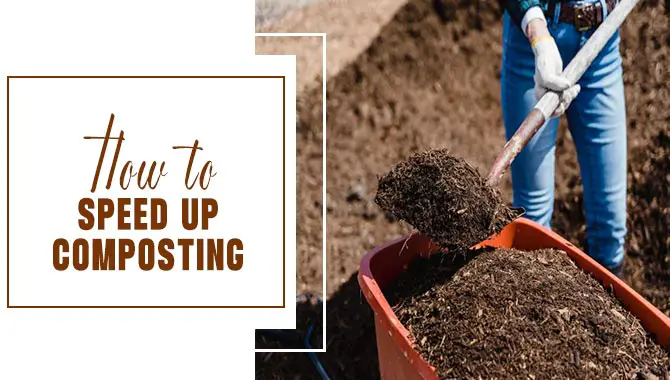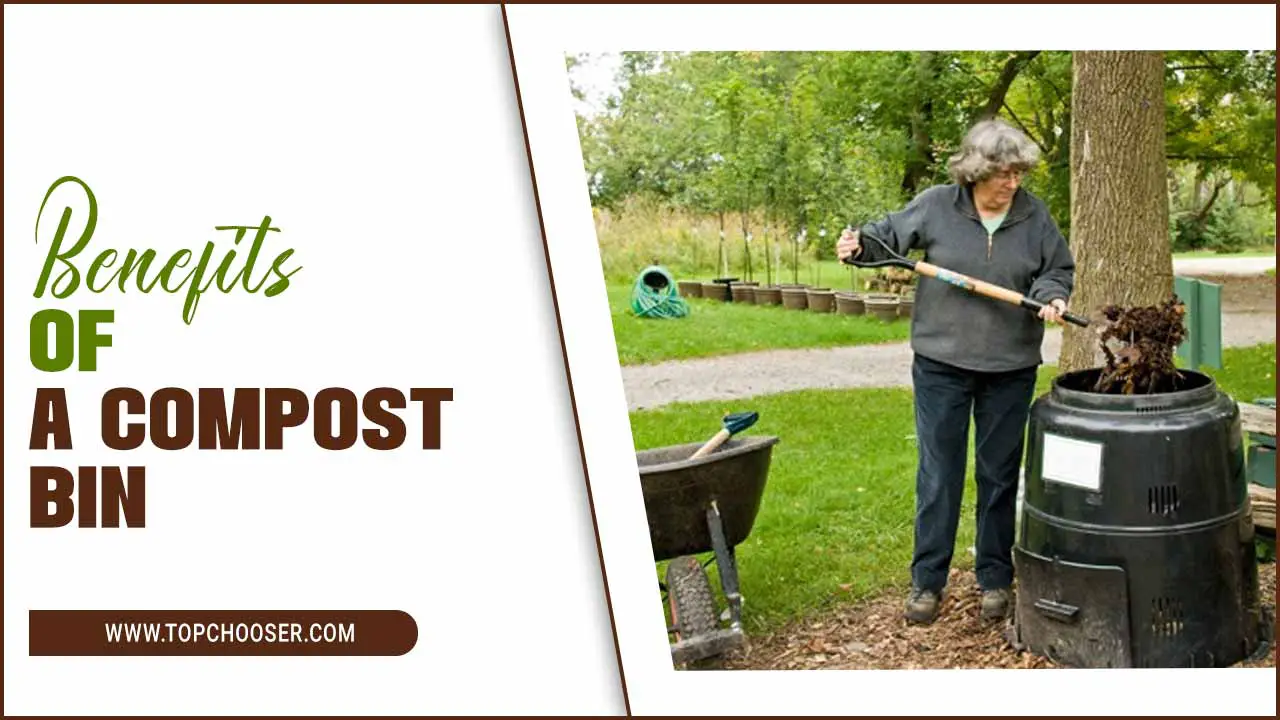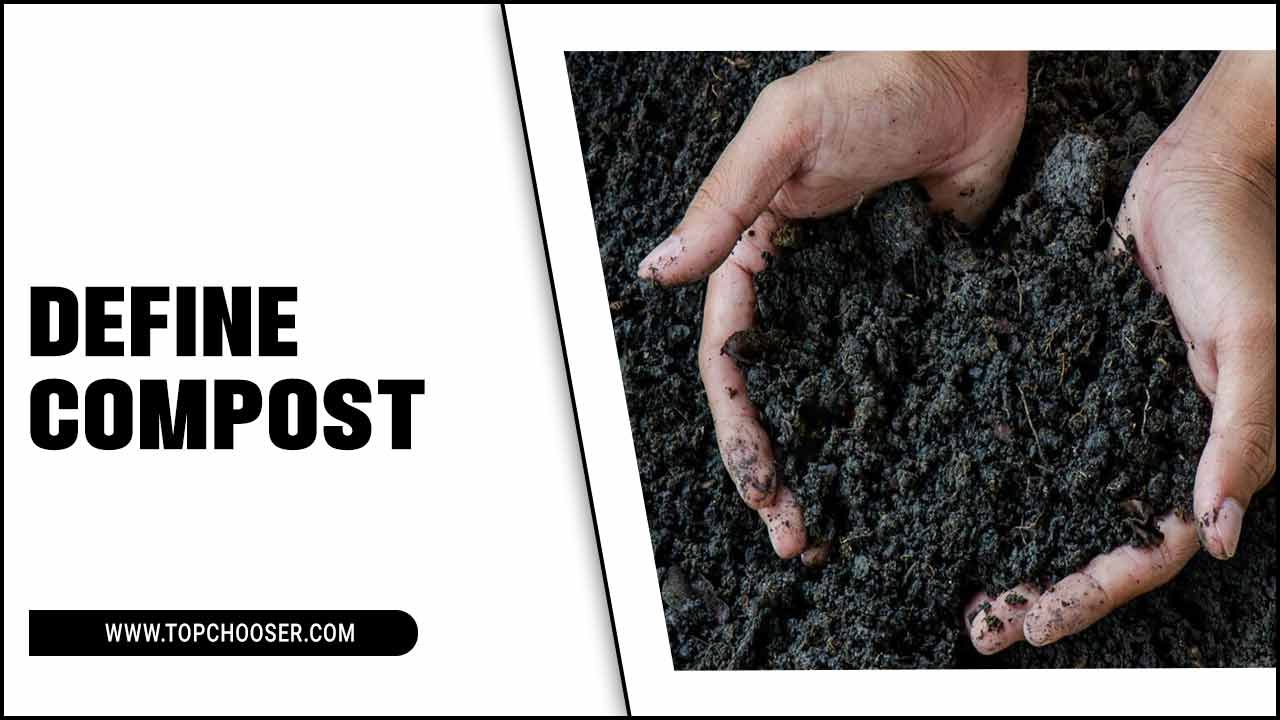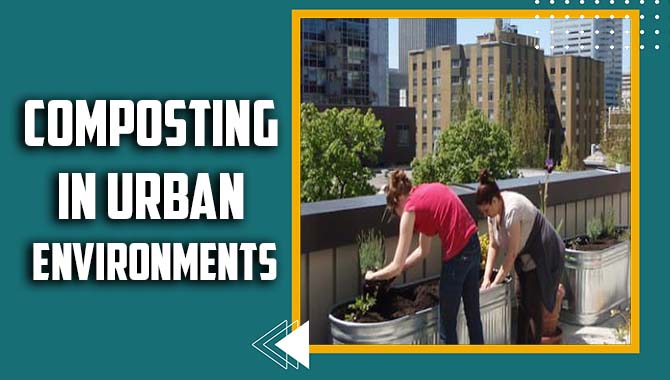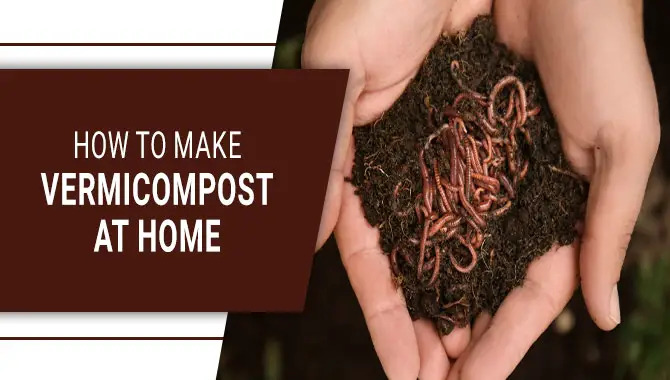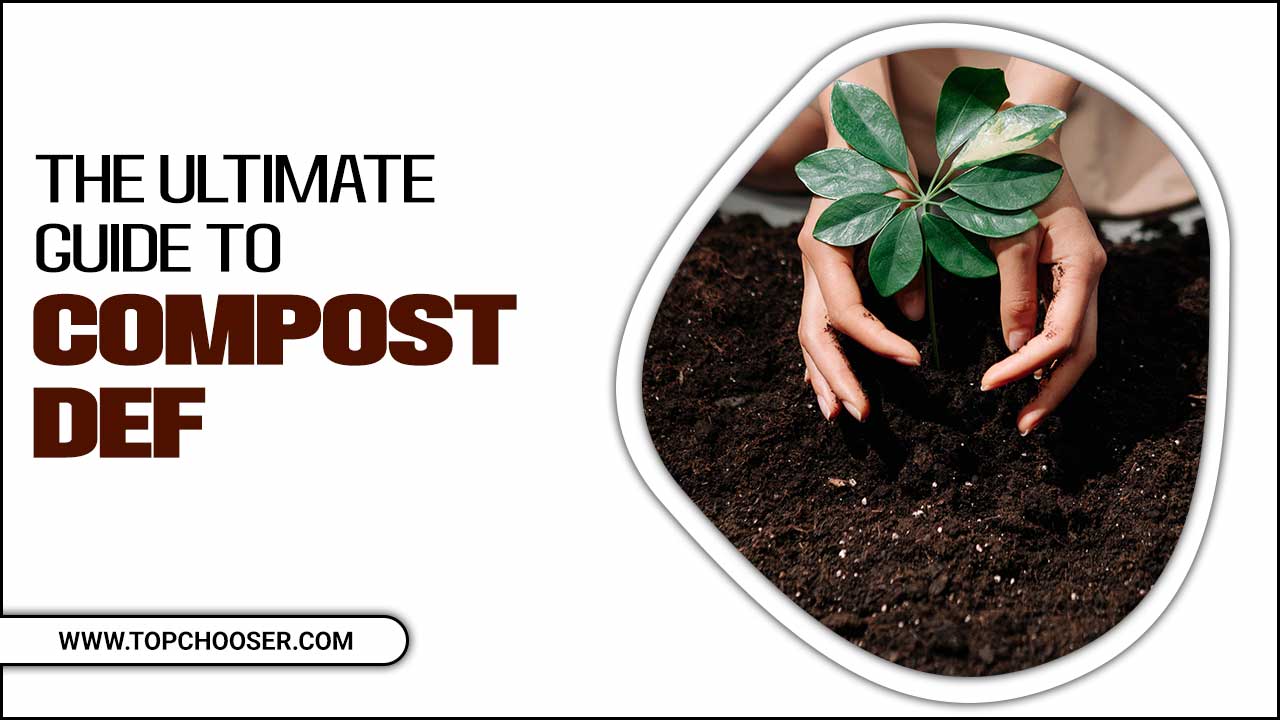Composting is a simple yet highly effective way to enrich your garden soil and promote the growth of healthy, vibrant plants. Essentially, compost is a mixture of decomposed organic matter that can serve as a natural fertilizer and soil amendment.
This decomposition process creates a nutrient-rich, dark, and crumbly substance that can be added to garden soil to improve its quality and structure. For centuries, gardeners have recognized the benefits of compost and have utilized it to enhance the health and productivity of their gardens.
As more people have become interested in sustainable living practices in recent years, composting has gained even more popularity as an eco-friendly way to nourish plants without using chemical fertilizers. We will delve into the world of composting for gardens and how to use compost for gardens.
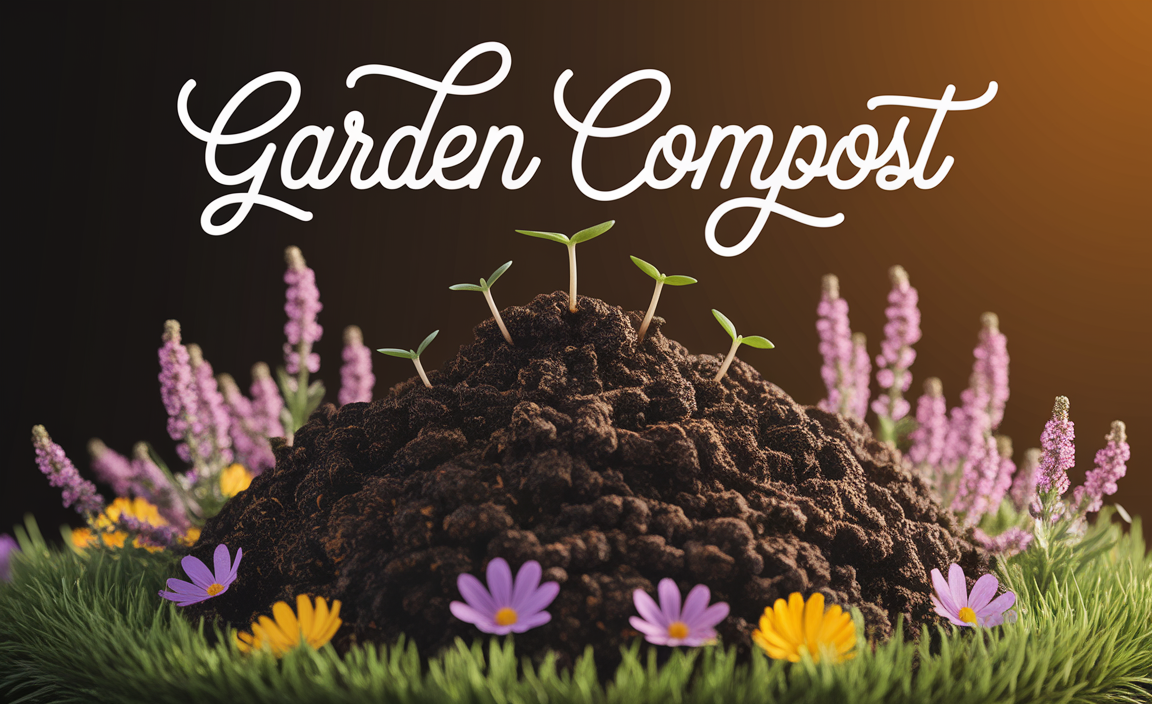
Types of compost materials
The composting process involves breaking down organic material into nutrient-rich organic matter that can be used to enrich garden beds and soil. Green materials, such as kitchen scraps and yard waste, provide nitrogen, while brown materials, like leaves and straw, supply carbon. By combining these elements, the composting process creates a balanced mixture that promotes healthy plant growth and sustainable gardening practices. Some types of compost material are:
- Green materials
- Brown materials
- Kitchen scraps
- Yard waste
Compost for gardens: Using a process
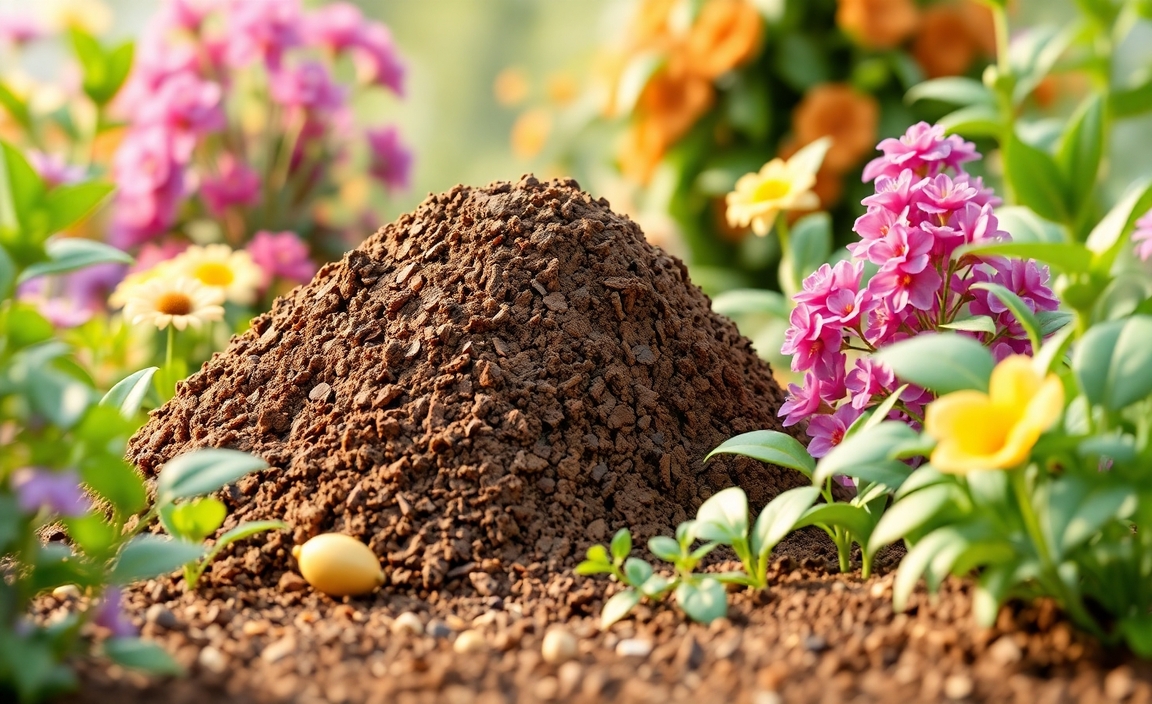
Composting for gardens is a natural process that enhances garden soil quality by recycling organic waste materials. The benefits of compost are numerous, as it enriches the soil with essential nutrients, improves soil structure, and promotes the growth of healthy plants. By adding a layer of compost to the soil, gardeners can create a fertile environment that supports plant growth and increases soil moisture retention. Compost is a sustainable and eco-friendly solution that contributes to a garden’s overall health and productivity. Here are how to use of compost in gardens.
A. Mixing compost with soil
Mixing compost with soil is an excellent way to enrich garden beds with essential nutrients and organic matter, promoting healthy plant growth and improving soil structure. Compost is a natural, sustainable option that benefits the environment by reducing waste and providing a nutrient-rich alternative to chemical fertilizers. By integrating compost into garden soil, gardeners can enhance soil fertility, retain moisture, and support beneficial microbial activity.
B. Top-dressing plants with compost
Top-dressing plants with compost is a beneficial practice for nourishment. Applying compost to gardens can enhance soil structure, boost its nutrient content, and improve overall plant health. Compost is a natural fertilizer, enriching the soil with essential organic matter that promotes robust growth and resilience in plants. Whether cultivating vegetables, flowers, or shrubs, incorporating compost into your gardening routine can significantly benefit your plants, creating a thriving and sustainable ecosystem.
C. Making compost tea
Making compost tea involves utilizing compost as a rich and nutrient-dense source for gardens. This organic method entails steeping compost in water to create a liquid fertilizer that can enhance soil health and plant growth. By harnessing the beneficial microbes and nutrients present in compost, gardeners can effectively nourish their plants and improve overall garden vitality. Compost tea helps promote soil biodiversity, fostering healthier root systems and supporting sustainable gardening practices. It is a natural and eco-friendly way to boost garden productivity and enhance plant resilience.
Common composting mistakes to avoid
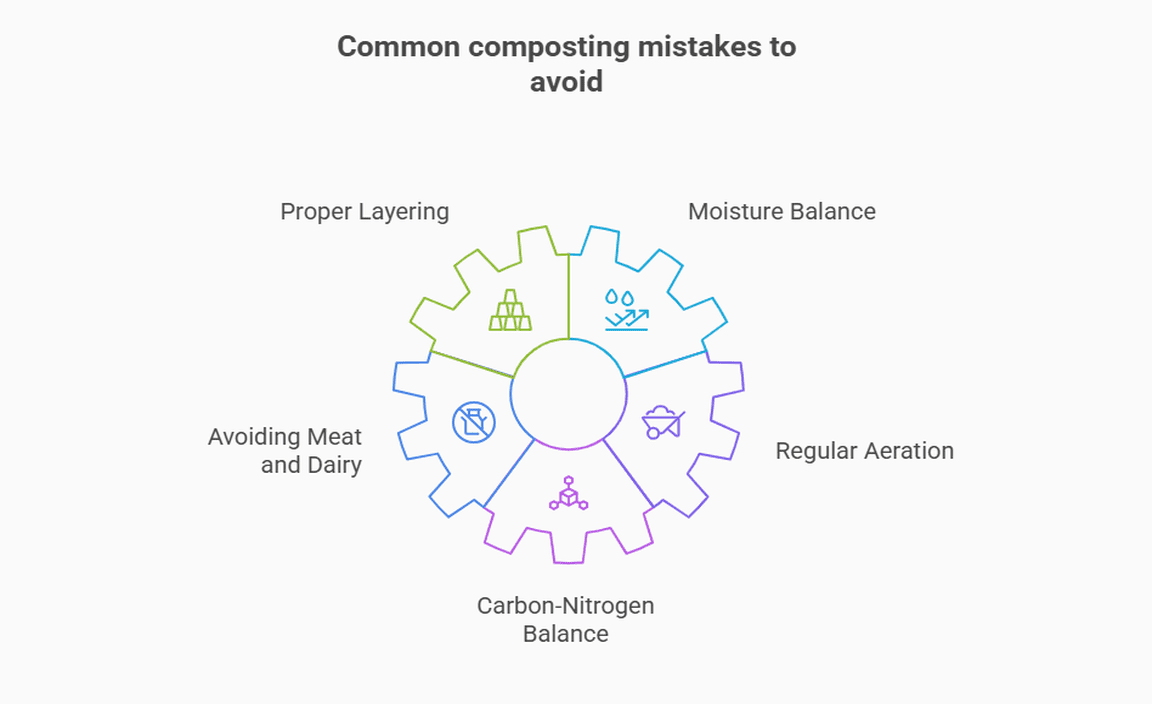
There are several common mistakes to avoid when composting. One is improper layering, where the materials are not properly stacked in the compost pile. Additionally, having too much moisture in the compost pile can hinder the proper breakdown of materials. By being mindful of these factors, you can ensure that your composting efforts are successful and efficient.
- Avoid meat, dairy, or oily foods in compost to prevent pests and slow decomposition
- Turn or aerate compost regularly for oxygen flow and to prevent odors
- Maintain a balance of carbon and nitrogen by not adding too much of one material
- Keep compost pile moist but not overly wet or dry to aid decomposition
How to create a compost pile
To create a compost pile effectively, layering food waste, garden waste, and grass clippings to establish a good mix of browns and greens. Ensure the pile is well-aerated by turning it regularly. Consider hot composting to speed up the decomposition process. This method involves maintaining high temperatures to break down materials quickly, resulting in nutrient-rich compost for your garden. Here’ are some steps to create a compost pile.
A. Choosing a location
When choosing a location for creating a compost pile, it is important to consider various factors such as sunlight exposure, drainage, and accessibility. Opt for a spot that receives ample sunlight to aid the decomposition process. Ensure proper drainage to prevent waterlogging, which can hinder composting. Accessibility is key for easy maintenance and regular turning of the pile. By carefully selecting a suitable location, you can create an efficient compost pile that yields nutrient-rich soil for your garden.
B. Layering materials
When creating a compost pile, start by layering organic waste such as fruit peels, vegetable scraps, and coffee grounds. Adding a layer of compost accelerates the decomposition process, providing essential nutrients for the soil. Utilizing compost tumblers helps mix the materials efficiently, ensuring proper aeration and faster breakdown. The compost pile can thrive by maintaining the right balance of green and brown materials, creating rich, nutrient-dense soil that benefits plants and the environment.
C. Turning the compost
To create a compost pile successfully, layering a few inches of compost at the bottom to ensure it is usable. As you add your green and brown materials, remember to regularly turn the pile to aerate it, using a compost thermometer to monitor the temperature. This turning process helps speed up decomposition and ensures an efficient breakdown of materials. By maintaining the right balance of ingredients and monitoring the temperature, your compost pile will thrive and produce nutrient-rich compost for your garden. Remember, consistency is key in composting.
D. Monitoring moisture levels
In monitoring moisture levels for your compost pile, it is essential to understand the decomposition process. Cold composting involves naturally letting organic materials break down over time, requiring less monitoring and effort. On the other hand, worm composting, also known as vermicomposting, utilizes worms to accelerate decomposition. These worms can efficiently break down organic matter by creating a suitable environment with adequate moisture, temperature, and aeration.
Troubleshooting common composting issues
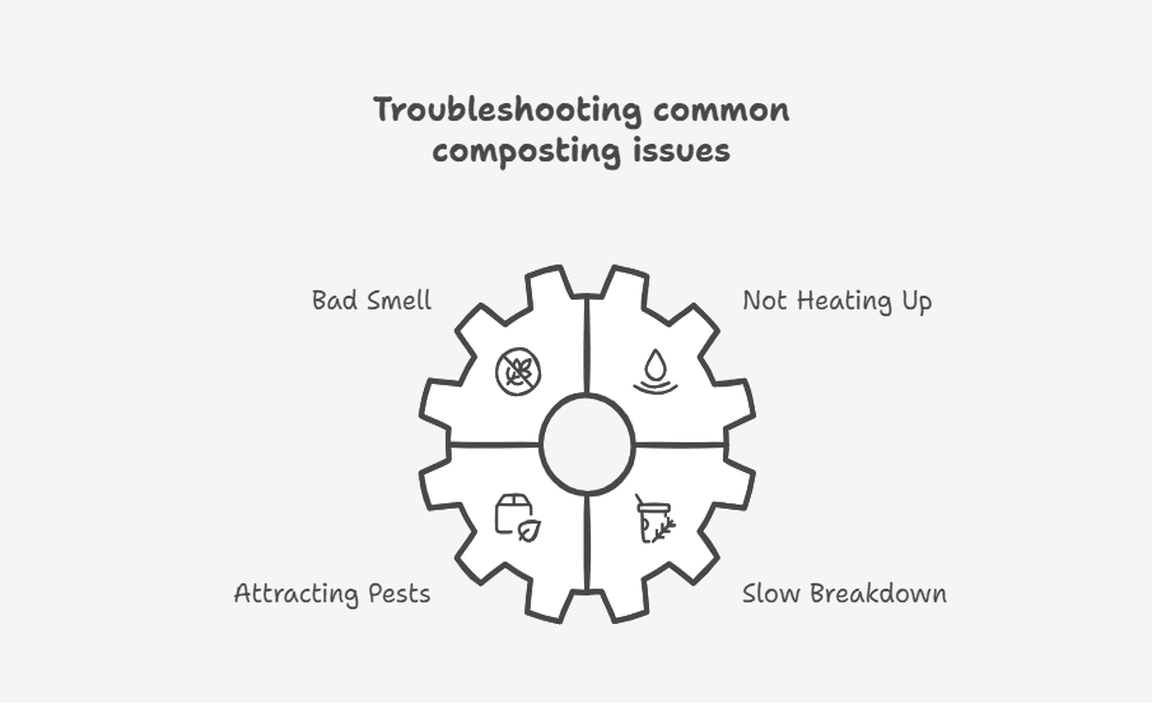
When addressing common composting problems, it is important to consider multiple factors. Smelly compost can often result from inadequate aeration or too much moisture in the pile. By addressing these issues promptly, you can optimize your composting process and create nutrient-rich soil for your garden.
- Bad smell: Add dry materials like leaves, straw, or newspaper
- Not heating up: Add water and mix materials for proper moisture
- Attracting pests: Avoid meat, dairy, or oily foods; cover with soil or compost
- Slow breakdown: Add nitrogen-rich materials like grass clippings, fruit/veggie scraps, or coffee grounds; aerate and turn regularly
Benefits of using compost in gardens
Using compost in gardens provides numerous benefits for plants and soil health. Compost enriches the soil with essential nutrients, improves soil structure, enhances water retention, and promotes beneficial microbial activity. It also helps suppress plant diseases, reduces the need for chemical fertilizers, and supports a more sustainable and eco-friendly gardening practice. Here are some benefits of using compost in gardens:
- Compost enriches the soil with essential nutrients.
- It helps retain soil moisture
- Improves soil structure for plant growth
- Reduces the need for chemical fertilizers
Conclusion
Compost is a valuable resource for any garden, providing essential nutrients and improving soil health. Aside from its benefits for plants and soil, composting also positively impacts the environment. By diverting organic waste from landfills, composting reduces methane emissions, a potent greenhouse gas. It also helps to conserve water by improving soil moisture retention and reducing the need for irrigation. With the right materials and techniques, you can create your compost at home or purchase it from a reputable source. So why not give compost a try and see the positive impact it can have on your garden and the planet?
FAQ:
Is compost a fertilizer?
Compost is not technically a fertilizer but can act as one when added to soil. Compost improves soil structure, adds essential nutrients, and enhances microbial activity, promoting healthy plant growth.
What is the best source of compost?
The best source of compost is a combination of green materials (such as fruit and vegetable scraps and grass clippings) and brown materials (such as leaves and straw) mixed in the right proportions to create a nutrient-rich soil amendment.
What not to put in compost?
Avoid putting meat, dairy, oils, fats, pet waste, diseased plants, and invasive weeds in compost, as they can attract pests or introduce harmful pathogens.
Is fruit good for compost?
Yes, fruit is excellent for composting as it is a rich source of nutrients like potassium and phosphorus. Fruit scraps can provide essential organic matter for the compost pile, aiding in the decomposition process and creating nutrient-rich compost for your garden.
Is compost good for flowers?
Yes, compost is excellent for flowers as it enriches the soil with essential nutrients, improves soil structure, retains moisture, and promotes healthy root growth and overall plant development.
Resource:
home composting basics: https://www.nrdc.org/stories/composting-101
soil health with compost: https://www.nrcs.usda.gov/sites/default/files/2022-10/soils-composting-fact-sheet.pdf
reducing food waste through composting: https://www.epa.gov/recycle/composting-home
best compost use practices: https://ccmg.ucanr.edu/files/22903.pdf

I am passionate about home engineering. I specialize in designing, installing, and maintaining heating, ventilation, and air conditioning systems. My goal is to help people stay comfortable in their homes all year long.

